Malawi
Malawi, in long form the Republic of Malawi is a state located in southern Africa, between Mozambique, Zambia and Tanzania. Without an outlet on the sea, it is bathed by Lake Malawi, or Nyassa, the third lake in Africa by its area, which covers about a fifth of the area of the country and into which flow eight main rivers and hundreds of small rivers. ‘water. The origin of the name “Malawi” is originally attributed to the name of the lake in the Bantu language but it is not certain; this name evokes the twinkling of the sun when it rises on the lake, represented on the flag of the country, or is derived from the name of a population in the south of the country.
Malawi’s history
From prehistory to colonial times
The occupation by hominids dates back two and a half million years. The shores of the lake are inhabited by prehistoric populations between 50,000 and 60,000 BC. Bones dating from around 8,000 BC. It can be deduced that the physical characteristics of the local population were similar to the ethnic groups which inhabit the horn of Africa today. Another site dated 1500 BC. AD houses remains with similarities to the San. The region of what is nowadays Malawi therefore shelters a population of hunter-gatherers when waves of Bantu peoples from the north arrive from the beginning of the Christian era. Although most of the Bantu peoples continued south, some remained permanently and founded unified ethnic groups around the concept of common ancestors. Towards the 13th century arrive the Maravis, Bantu; they were established and, around 1500, the Maravi kingdom dominated the region. At its peak in the sixteenth and seventeenth centuries, it extended from Nkhotakota in the north to the Zambezi and from Lake Malawi to the Luangwa River in present-day Zambia. Shortly after 1600, the clan leaders began to meet, trade and make alliances with merchants and members of the Portuguese army. In 1700, the kingdom was divided into zones each controlled by an ethnic group. The slave trade was in full swing in the 1800s; around 20,000 people are enslaved and deported each year, supplying in particular the important slave port of Kilwa.
David Livingstone, explorer and missionary, traveling up the Shire River, reached the lake in 1859. In his wake, the Scottish Presbyterian Church established several missions around the lake, in order to support the “civilizing mission” of colonization and to stem the slave trade, but this trade continued until the end of the 19th century. In 1878 traders from Glasgow founded the African Lakes Corporation, a company established to supply the missions. Other Europeans follow to trade, cultivate and hunt. In 1891, the British founded the protectorate of British Central Africa and, in 1907, the protectorate of Nyasaland (Nyassa in Yao language means “lake”; it is one of the names of Lake Malawi, still today called Nyasa or Niassa). A rebellion broke out in 1915, led by Pastor John Chilembwe, and took on an explicitly anti-colonial character. She was violently crushed by British troops.
The British maintained dominance over this region throughout the first half of the 20th century, opposing numerous attempts by the locals to gain independence. An African elite having studied in schools in Europe and the United States emerged, allowing the creation, in 1944, of the Nyasaland African Congress (NAC). In 1953, Nyasaland joined the Federation of Rhodesia and Nyasaland, with Northern Rhodesia and Southern Rhodesia. The colonists and the mining companies support this regrouping in order to prepare an independence under white domination, on the South African model. In 1958, Doctor Hastings Kamuzu Banda (who had obtained his doctorate in medicine in the United States in 1937) returned to Malawi and became leader of the NAC, which he transformed into the Malawi Congress Party (MCP). He takes part in the constitutional conference in London. During the elections of April 15, 1961, the MCP won an overwhelming victory in the Legislative Council, also obtaining control of the Executive Council of Nyassaland.
Independence
In 1962, the British government granted Nyasaland self-determination. Banda became Prime Minister on February 1, 1963, while the British still controlled the country’s financial, security and legal systems. The Federation of Rhodesia and Nyasaland was dissolved on December 31, 1963, and on July 6, 1964, the independence of Malawi was proclaimed. Malawian law then applies. The country joined the Commonwealth. Two years later, Malawi adopts a new constitution with a single party, and Banda as the first president. In 1970 Banda was declared life president of MCP, and in 1971 life president of Malawi. The paramilitary wing of the MCP (young pioneers) helped keep the country under authoritarian rule until 1990. Pressure from the churches of Malawi and the international community forced the regime to hold a referendum on June 14, 1993, during which Malawians voted in favor of a pluralist democratic regime.
On May 17, 1994, the first free elections brought victory for the United Democratic Front (UDF) of Bakili Muluzi, which united with the Alliance for Democracy (AFORD). Muluzi is elected president by defeating the outgoing head of state. Despite the dissolution of the coalition in 1996, Muluzi and his supporters remained in government. In 1995 Muluzi received the title of Doctor honoris causa from Lincoln University in Missouri. He drew up a new constitution repealing the residual privileges of the MCP. On June 15, 1999, he was re-elected, against a coalition of the MCP and AFORD. In May 2004, the UDF presidential candidate Bingu wa Mutharika defeated the MCP candidate. Despite this, the UDF does not have a majority in Parliament and forms a “government of national unity”. Bingu wa Mutharika is leaving the UDF, officially due to a significant difference of opinion over the president’s anti-corruption campaign. President Bingu wa Mutharika was re-elected in May 2009. On his death on April 6, 2012, he was replaced by the Vice-President of the Republic, Joyce Banda. Peter Mutharika, brother of Bingu wa Mutharika, succeeded him as president on May 31, 2014. He was re-elected for a second term in the 2019 presidential election, in a tight ballot. The opposition denounces fraudulent results. On February 3, 2020, the constitutional court, finding irregularities, canceled the election.
Malawi’s politics
Since 1994 Malawi has been open to a multi-party system. In accordance with the 1995 constitution, the President of the Republic is elected by universal suffrage, every five years. The members of the presidential cabinet are chosen by the President of the Republic. The National Assembly is made up of 193 deputies (including some women) elected for five years. The Constitution also provides for an 80-seat Senate, which represents all regions as well as groups with specific interests, such as young people, the disabled; but this institution does not yet exist. The Constitution provides for an independent judicial system, based on the English model, with a first level Court, a High Court, and a Supreme Court of Appeal. Local administration is divided into districts, under the responsibility of a governor appointed by the central government; During the first local elections in 2000, the United Democratic Front (UDF) won 70% of the seats.
Malawi’s economy
Malawi’s economy is largely based on agriculture, which accounts for almost 30% of its GDP and more than 80% of its export earnings. It is the African country which invests the highest proportion of its GDP in this sector. Its population resides 85% in rural areas and “89% of the active population occupies informal positions, 91% of these jobs being in rural areas. It is one of the poorest countries in the world with the lowest GDP per capita on the planet in 2013 and a human development index which places it in 170th place worldwide (out of 188) in 2015.
Agricultural production
The agricultural production of the country is very fluctuating because of the important climatic vagaries which affect it, alternating floods and drought. The country produces tobacco, the main agricultural export, which alone generates 70% of the country’s foreign exchange earnings despite fluctuating production and overall declining profitability. It is the seventh world producer in 2013 and the second African. Its production massively uses child labor, 80,000 of which would be used to produce at the lowest cost. It is then the third African producer of tea; 90% of its production is exported, it represents 10% of the country’s agricultural export earnings. It is also one of the leading cotton producers in Africa, but its production continues to decrease. In terms of major production, Malawi is a net exporter of sugar and it also manufactures ethanol for biofuel, which is a production of the future supported by a plan to reduce the country’s dependence on oil. Finally, corn, the staple food, is essential to its food security; the climatic vagaries which affect its production have devastating effects by generating food crises.
Mining industry
The only large-scale mining in Malawi was the Paladin-run Kayelekera uranium mine. But extraction has been stopped since early 2014, due to the drop in uranium prices and the lack of profitability. The soils of Malawi also contain coal and rare natural minerals, the exploitation of which is envisaged to compensate for the tax losses linked to the shutdown of the uranium mine.
Tourist activity
Ecotourism
Malawi offers several sites dedicated to ecotourism. The island of Mumbo is a tropical virgin island, uninhabited most of the year, lying in the middle of the large lake Malawi, with a diameter of one kilometer, near the southern shore. There is a great botanical diversity. Liwonde National Park is a national park located on the east bank of the Shire River. You can find there multiple mammals like elephants or hippos or several lions, as well as crocodiles and caimans and still African fishing eagles. The Lilongwe Wildlilfe Trust is an animal center, inaugurated in 2007, which collects injured or orphaned animals. But the latter also allows visitors to observe these animals.
Cultural tourism
Blantyre, the former capital of the country, is a city located in the southern region of Malawi, populated by approximately one million inhabitants, created at the end of the nineteenth century. You can find the Saint-Michel-et-tous-les-Anges church there. Local legend has it that the builders of this church had no experience or knowledge in architecture and masonry during the construction of this building, and that it is thanks to their will that they succeeded. In the South, Lilongwe, “the old city”, the present capital, is similar to most small African cities, where residential, commercial and industrial buildings are mixed.
Malawi’s demography
The population was 18,091,575 in 2016, 85% of whom lived in rural areas. The population is unevenly distributed. The northern and central highlands are sparsely populated, unlike the southern depressions. Population growth is strong (around 3% per year).
Malawi’s education
The share of spending on education among government spending in the period 1998–2007 was 12% and represented 5.4% of GDP for the period 2008–2010, which is higher than for countries with comparable development. Primary school lasts eight years, from 6 to 13 years old. It is free but not compulsory. Secondary education lasts four years and ends with the MSCE, Malawi School Certificate Examination. The duration of higher education is variable. Admission to the university is based on individual performance at the MSCE and on the entrance exams to the university. The school system is characterized by very high dropout and repetition rates, by a very strong social inequality and by a inequality between the sexes which leads to a higher rate of illiteracy in adulthood among women (30 % versus 25.7% for men).
Malawi’s language
The official language of Malawi is English, the ancient colonial language, used mainly in urban areas, but still known in rural areas, it is the mother tongue of less than 1% of the country’s population and is very poorly controlled and rarely used by the population of the country ; the local English spoken is Malawian English. Chewa is the national and vehicular language of the country ; it is spoken throughout the country.
-
Malawi
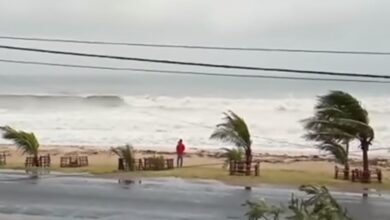
Malawi’s Information Minister Says Country’s Situation Still Dire Weeks After Storm
Malawi’s Information Minister Moses Kunkuyu on Tuesday said the country’s situation is still dire two weeks after Cyclone Freddy caused…
Read More » -
Malawi
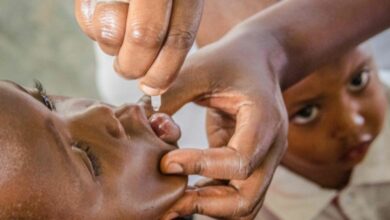
WHO: Mozambique Records Rise In Cholera Cases, Malawi Sees Decline
The World Health Organization (WHO) on Wednesday said Mozambique reported a spike in the number of cholera cases in the…
Read More » -
Malawi
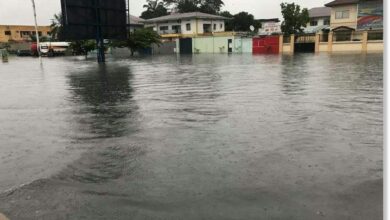
Malawi President Chakwera Declares State-of-Disaster After Cyclone’s Deadly Return
Malawi President Malawi President Dr. Lazarus Chakwera on Monday declared a state-of-disaster in several southern districts after the powerful Tropical…
Read More » -
Malawi
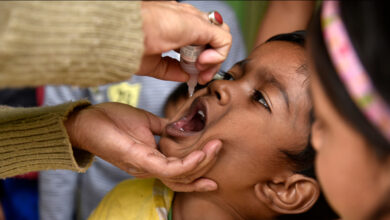
WHO: Malawi Facing Deadliest Cholera Outbreak Ever, Calls For Urgent Intervention
The World Health Organization (WHO) on Thursday said Malawi is experiencing the deadliest cholera outbreak in its history, with over…
Read More » -
Malawi
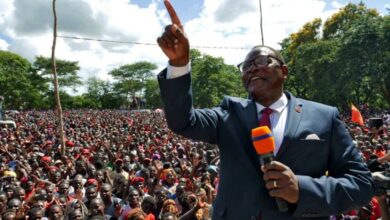
Malawi’s President Chakwera Reduces Cabinet Size In First Major Reshuffle Of 2023
Malawi’s President Lazarus Chakwera reduced the size of his cabinet on Tuesday in his first Cabinet reshuffle of 2023, reported…
Read More » -
Malawi

Malawi’s Health Minister Says Cholera Outbreak Kills 750 As World Cases Rise By 50%
Malawi’s Health Minister Khumbize Kandodo Chiponda on Thursday said the cholera outbreak in the country, the worst in two decades,…
Read More » -
Malawi
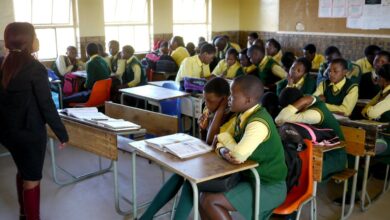
Malawi’s Government Announces Delay In Reopening Of Schools Amid Cholera Outbreak
Malawi’s health minister on Monday announced the government has decided to delay the opening of public schools in the country’s…
Read More » -
Malawi
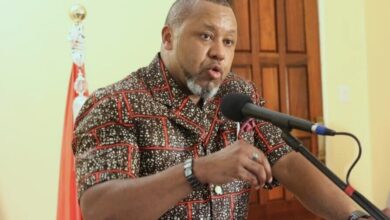
Malawi’s Vice President Saulos Chilima Arrested By Anti-Corruption Bureau
Malawi’s Anti-Corruption Bureau on Friday said it has arrested the country’s Vice President Saulos Chilima over corruption allegations, reported The…
Read More » -
Malawi

WHO: Malawi Receives 2.9 Million Cholera Oral Vaccine Doses As Outbreak Spreads
The World Health Organization (WHO) and the United Nations Children’s Fund (UNICEF) on Monday said Malawi has received 2.9 million…
Read More » -
Malawi

Malawi’s Health Ministry Informs 110 Dead In Cholera Outbreak Since March
Malawi’s health ministry on Monday announced the number of deaths from cholera in the country rose to 183 at October…
Read More » -
Malawi

Malawi’s Authorities Appeal To WHO For More Vaccines To Battle Cholera Outbreak
Malawi’s health authorities have made an appeal to the World Health Organization (WHO) for more Cholera vaccines as the water-borne…
Read More » -
Malawi

Malawi’s Health Authorities: Over 3200 People Infected With Cholera
Malawi’s health authorities on Monday said the country’s healthcare service delivery system is being weighed down by the latest cholera…
Read More » -
Malawi
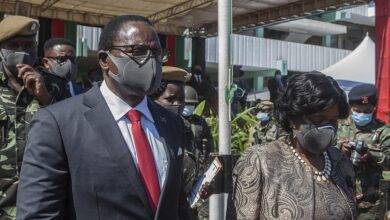
Malawi’s President Stops Delegating Duties To Vice President Over Corruption Scandal
Malawi’s President Lazarus Chakwera on Tuesday announced that he has stopped delegating duties to his Vice-President Saulos Chilima after the…
Read More » -
Health

WHO Announces Launch Of Mass Polio Vaccination Drive In Five African Countries
The World Health Organization (WHO) on Friday announced more than 80 million vaccination doses against wild poliovirus type 1 will…
Read More » -
Malawi

WHO Confirms Wild Poliovirus Type 1 Outbreak In Malawi, Case Detected In Lilongwe
The World Health Organization (WHO) on Friday said Malawi’s health authorities have an outbreak of wild poliovirus type 1 after…
Read More » -
Malawi

Malawian President Lazarus Chakwera Warns His Cabinet To Stay Away From Corruption
Malawian President Lazarus Chakwera on Sunday warned against corruption in the country. The president’s warning came just a few days…
Read More » -
Malawi

Malawi’s President Lazarus Chakwera Dissolves Cabinet Over Corruption Charges
Malawi’s President Lazarus Chakwera on Monday announced he has dissolved the entire cabinet amid charges of corruption against several ministers,…
Read More » -
Malawi
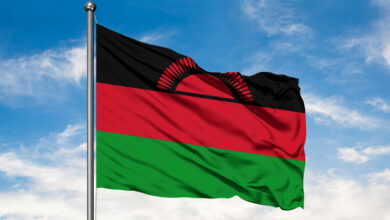
Malawi’s Former Deputy Speaker Clement Chiwaya Shoots Himself Dead In Parliament
Malawi’s former deputy speaker shot himself dead inside parliament in the capital, Lilongwe, on Thursday, reported Africa News. Clement Chiwaya,…
Read More » -
Malawi
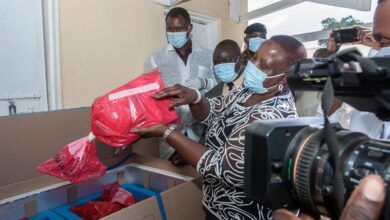
Malawi Destroys Nearly 17,000 Expired AstraZeneca COVID-19 Vaccines Doses
Malawi health authorities on Wednesday destroyed nearly 17,000 AstraZeneca COVID-19 vaccine doses that had expired in mid-April to boost public…
Read More » -
Malawi
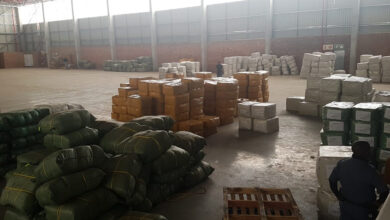
Malawi’s Health Authorities To Destroy Thousands Of Expired Covid Vaccines
Malawi’s Health Secretary Charles Mwansambo on Wednesday said the health ministry will destroy more than 16,000 doses of COVID-19 vaccine…
Read More » -
Malawi

Malawian President Declares A State Of Disaster & Three Days Of National Mourning
Malawian President Lazarus Chakwera on Tuesday declared a state of disaster and announced three days of national mourning after two…
Read More » -
Malawi
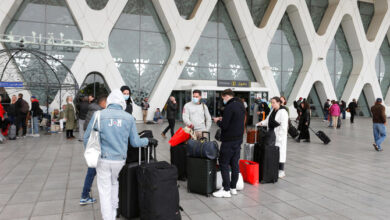
Malawi Government Closes Borders For Next 14 Days Amid Surge In Coronavirus Cases
Malawi government on Wednesday closed the country’s border for the next 14 days following a new surge in coronavirus cases,…
Read More » -
Malawi

Malawi: Government To Lift Air Travel, School Restrictions From September
The Malawi government has announced it is going to reopen its main airport on Sept 1 and public schools on…
Read More » -
Malawi

Malawi: President Lazarus Chakwera Cancels Independence Celebrations
Malawi’s new President Lazarus Chakwera on Sunday called off independence celebrations amid a drastic spike in the number of coronavirus…
Read More » -
Malawi
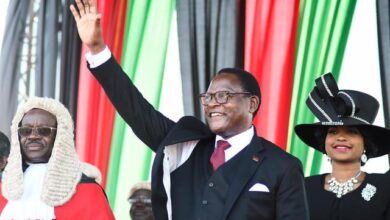
Malawi: Lazarus Chakwera Gets Sworn In As New President For Next Five Years
Lazarus Chakwera was sworn in as Malawi’s new president on Sunday after the election commission declared him as the winner…
Read More »

